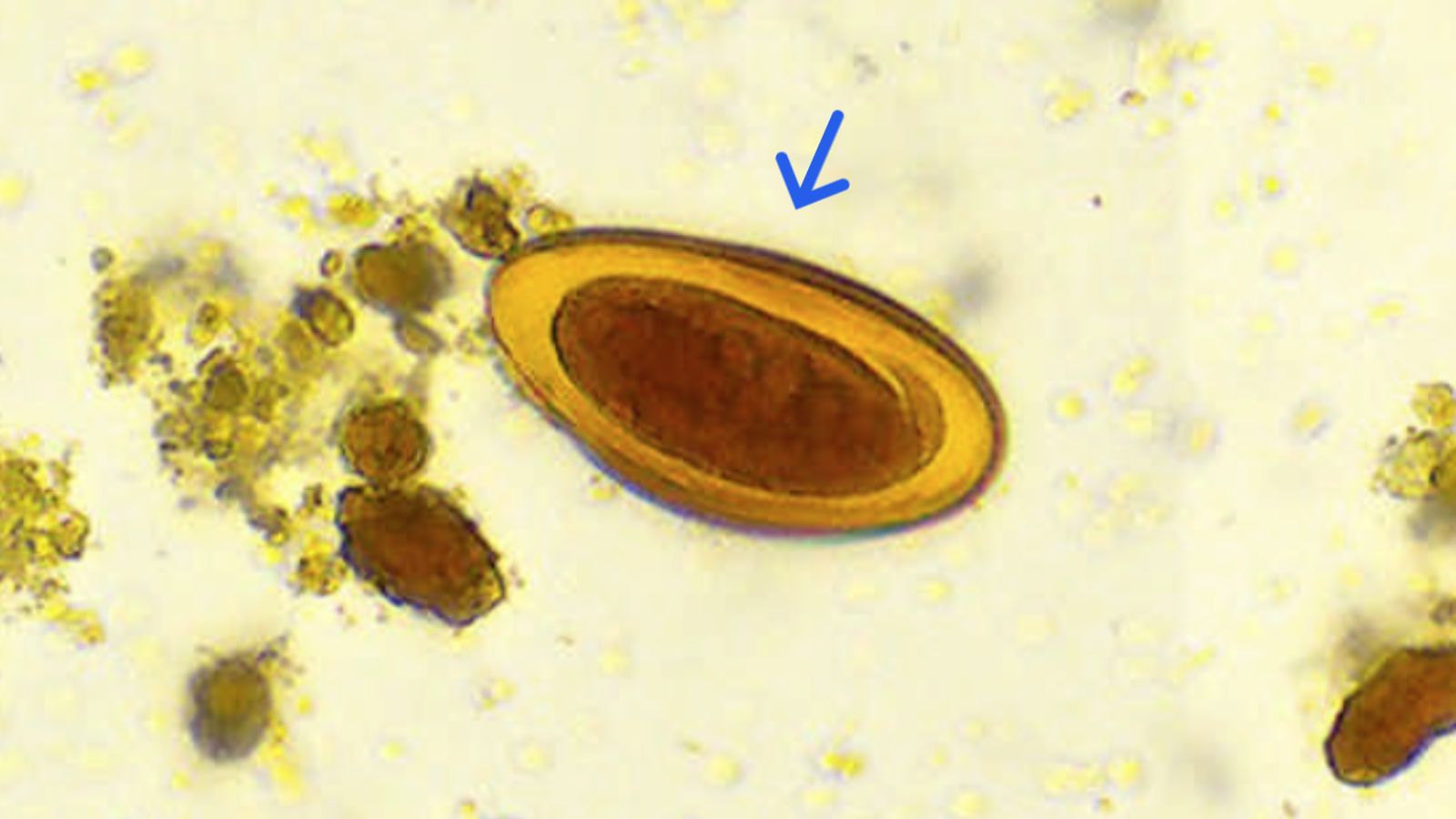
Avoid common parasites this 4th of July by learning essential tips for staying safe during your celebrations, which include barbecues, swimming, and outdoor fun. These activities can expose you to parasites that thrive in the summer months. At Techcyte, our advanced AI algorithm is designed to assist in the counting and classification of a wide range of parasites.
Here’s a guide to help you avoid common parasites while enjoying your Independence Day festivities.
Giardia duodenalis
- Activities: Swimming in lakes, rivers, or improperly treated pools, and drinking contaminated water.
- Symptoms: Diarrhea, stomach cramps, nausea, and dehydration.
- Prevention: Avoid swallowing water while swimming and drink only treated or bottled water.
Giardia duodenalis is a protozoan parasite found in the intestines of infected humans and animals. It can survive outside the body for long periods in cyst form, making contaminated water a significant source of infection. Take a look at Giardia duodenalis on a digitized Trichrome slide that our AI algorithm classified. Don’t be fooled by the cute smile. These are not friendly.

Cryptosporidium sp. oocysts
- Activities: Swimming in contaminated recreational waters and drinking contaminated water.
- Symptoms: Watery diarrhea, stomach cramps, nausea, and vomiting.
- Prevention: Swim only in pools and water bodies that are regularly tested and avoid swallowing water.
Cryptosporidium is highly resistant to chlorine disinfection and can survive in harsh environmental conditions. This resilience makes it one of the leading causes of waterborne illness worldwide. Take a look at Cryptosporidium sp. oocysts on a digitized MAF slide that the Techcyte AI algorithm classified.

Cyclospora cayetanensis oocysts
- Activities: Consuming contaminated food or water, often associated with imported fresh produce.
- Symptoms: Watery diarrhea, loss of appetite, weight loss, stomach cramps, bloating, increased gas, nausea, and fatigue.
- Prevention: Wash fruits and vegetables thoroughly and drink only safe, treated water.
Cyclospora cayetanensis is a single-celled parasite that infects the small intestine. It is often associated with foodborne outbreaks linked to imported produce, such as berries and leafy greens. Take a look at Cyclospora cayetanensis oocysts on a digitized MAF slide that our AI algorithm classified.

Hookworm Eggs
- Activities: Walking barefoot on contaminated soil, particularly in areas with poor sanitation.
- Symptoms: Itchy rash at the site of entry, abdominal pain, diarrhea, and anemia.
- Prevention: Wear shoes when walking outdoors, especially in areas where soil contamination is possible.
Hookworms are intestinal, blood-feeding nematodes that infect various mammals. The larvae penetrate the skin, often through the feet, and then travel through the bloodstream to the lungs and intestines, where they mature into adults. Take a look at Hookworm Eggs on a digitized Wet Mount slide that the Techcyte AI algorithm classified.

Enterobius vermicularis (Pinworm)
- Activities: Consuming contaminated food or water, and direct contact with contaminated surfaces or people.
- Symptoms: Itchy anal region, restlessness, and abdominal pain.
- Prevention: Maintain good hand hygiene, especially before eating and after using the restroom, and avoid sharing personal items.
Enterobius vermicularis, commonly known as pinworm, is a small, white worm that infects the intestines of humans. The most common symptom is itching around the anus, which can disrupt sleep and lead to secondary bacterial infections. Take a look at Enterobius vermicularis (Pinworm) on a digitized Wet Mount slide that our AI algorithm classified.

How Techcyte Helps
We’re revolutionizing the field of anatomic and clinical pathology. Our Unified AI Platform is designed to help laboratories provide accurate and efficient parasite detection. By leveraging our advanced algorithms, labs can digitize their workflows and achieve high-throughput screening with precision. Our platform can identify a wide range of parasites, including ways to avoid common parasites during summer activities.
Conclusion
Avoid common parasites by understanding their risks and symptoms, which can help you take the necessary precautions to stay healthy during your 4th of July celebrations. By following simple preventive measures such as practicing good hygiene, drinking safe water, and avoiding walking barefoot in potentially contaminated areas, you can enjoy the festivities without worry.
At Techcyte, our goal is to provide labs with a platform that can enhance the accuracy and efficiency of parasitic detection. By leveraging our technology, labs can quickly and accurately identify a wide range of parasites, ensuring better patient outcomes and more efficient operations. Have a safe, healthy, and happy Independence Day!